From the Principal
Dr Andrew Parry

From the Principal
Dr Andrew Parry
Music is what tells us that the human race is greater than we realise.
Napoleon Bonaparte
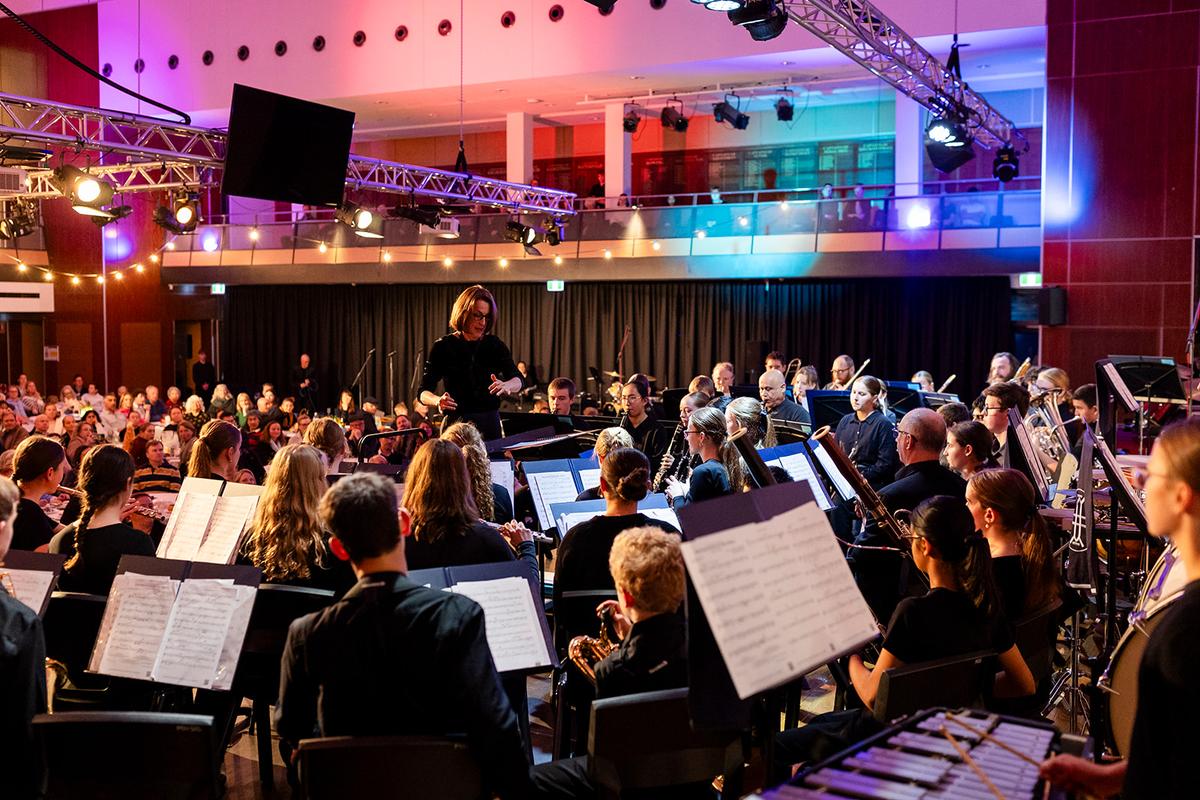

Our recent Performing Arts concerts have wonderfully showcased the outstanding quality of the Kinross Wolaroi Music program. We should be immensely proud of the level of superb musicianship attained by our students, a clear reflection of their skill, determination, persistence and desire for excellence. It is wonderful to see so many of our students in both the Senior and Junior School so actively engaged in our program and to observe the immense joy they gain from the experience.
Music is a universal language that transcends cultural boundaries and has the power to evoke emotions, ignite creativity, and foster personal growth.
Maria Von Trapp said, “Music acts like a magic key, to which the most tightly closed hearts open”.
As an important component of the educational experience, music offers a myriad of benefits that extend beyond mere entertainment. Music provides valuable opportunities for students to enhance their cognitive development, to promote emotional expression and wellbeing, to express cultural appreciation and diversity, to enhance academic performance and to develop valuable transferable skills.
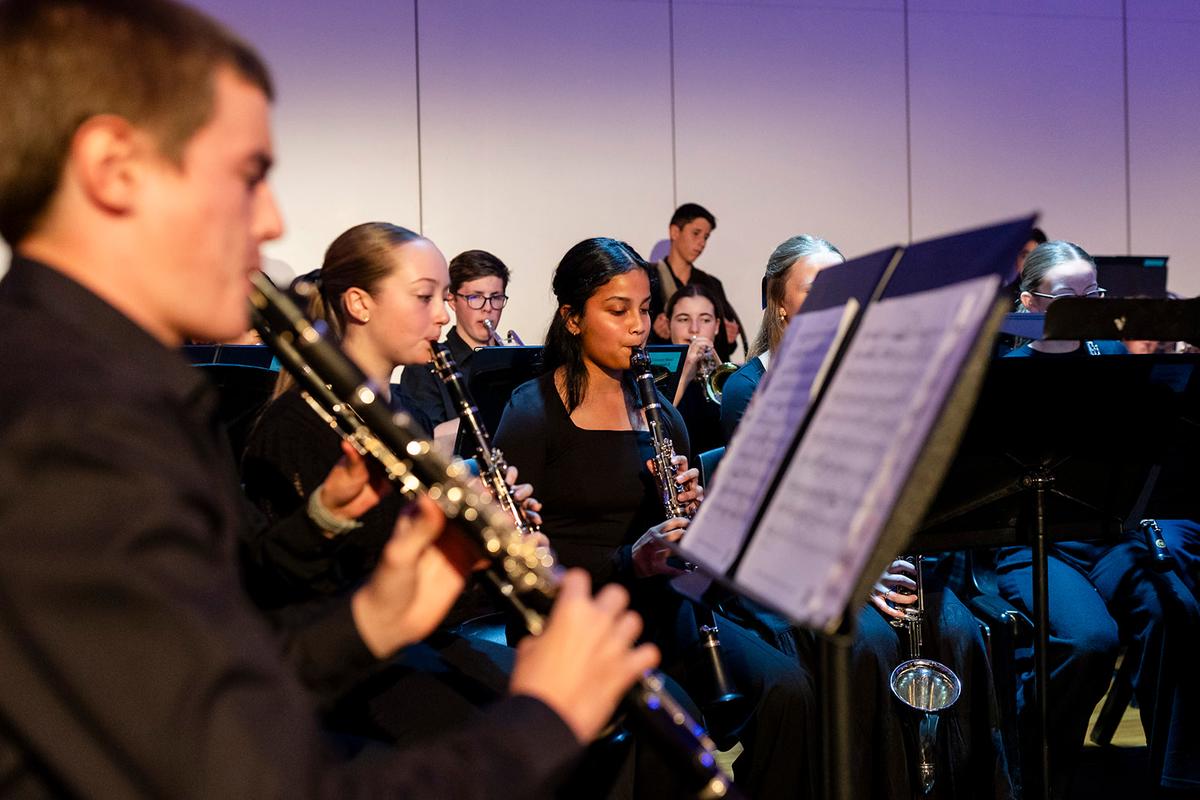

Numerous studies have highlighted the cognitive benefits of music education. The work of Dr Laurel Trainor (1) of McMaster University has found that music training enhances cognitive abilities such as attention, memory and problem-solving skills. It engages the brain in a unique way, stimulating neural connections and fostering neuroplasticity. Furthermore, research by Dr Nina Kraus (2) from Northwestern University suggests that music education improves auditory processing skills, which in turn positively impact language development and reading abilities.
Music provides a powerful avenue for emotional expression and wellbeing. Dr Susan Hallam (3), a researcher at UCL Institute of Education, emphasises the social and emotional benefits of music education. Playing a musical instrument fosters a sense of belonging, promotes teamwork and cultivates social bonds within musical ensembles. Moreover, music serves as a creative outlet, allowing students to express their emotions, regulate stress and develop resilience. This notion is supported by Dr Hallam’s findings that music-making contributes to improved mental health and overall wellbeing.
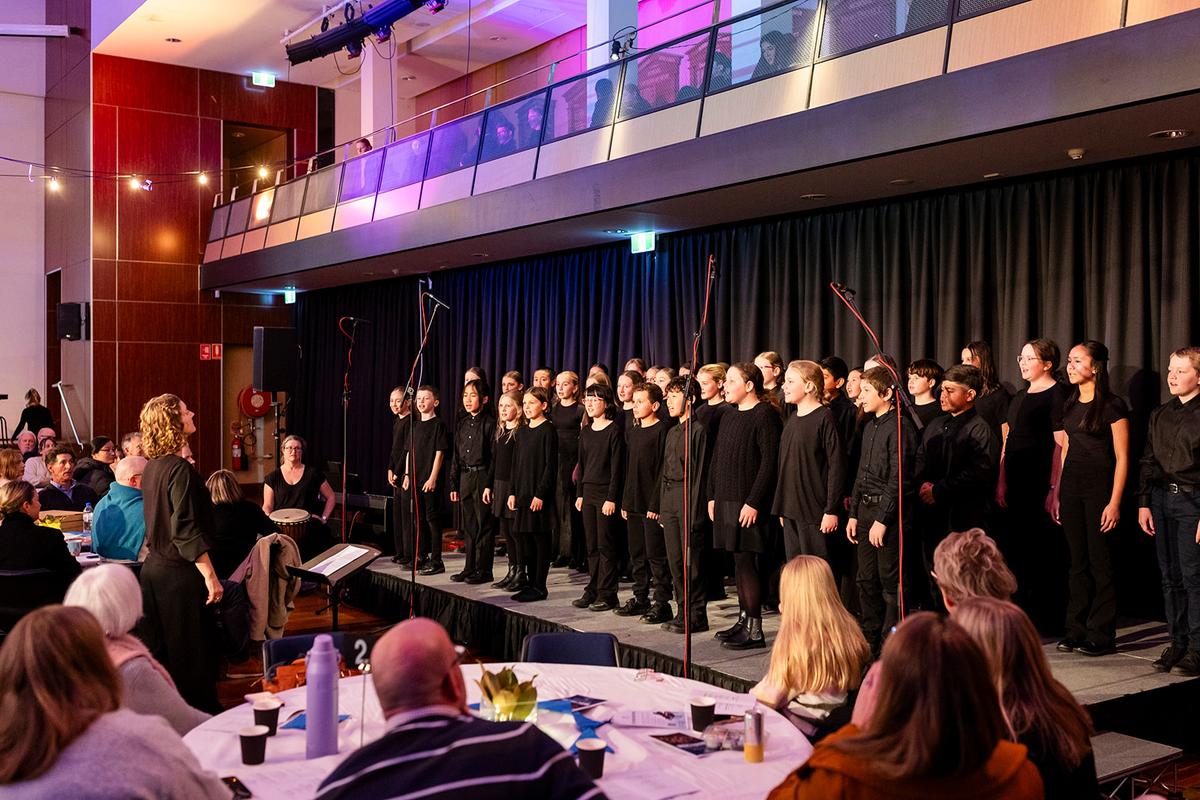

Music is deeply intertwined with culture, serving as a gateway to understanding and appreciation of diverse traditions. Dr Glenn Schellenberg (4) of the University of Toronto asserts that music education exposes students to various musical genres, styles and historical periods. By exploring music from different cultures, students gain a broader perspective of the world, fostering empathy and respect for cultural diversity. This exposure enhances their ability to connect with others and fosters a global mindset.
The integration of music into the educational experience has also been linked to improved academic performance. Dr Schellenberg’s research reveals a positive correlation between music training and enhanced mathematical abilities, spatial-temporal skills and overall academic achievement. Learning to play a musical instrument requires discipline, focus and perseverance, qualities that translate into other academic pursuits. Additionally, music training has been found to boost IQ scores, as demonstrated by Dr Schellenberg’s findings.
Music education cultivates a range of transferable skills that are valuable beyond the realm of music itself. Dr Anita Collins(5) of the University of Canberra underscores the long-term benefits of learning a musical instrument through practice and performance, students develop critical thinking, problem solving and self-regulation skills. They learn to set goals, manage their time effectively and handle constructive criticism and feedback. These skills, honed through musical education empower students to excel in various areas of their lives.
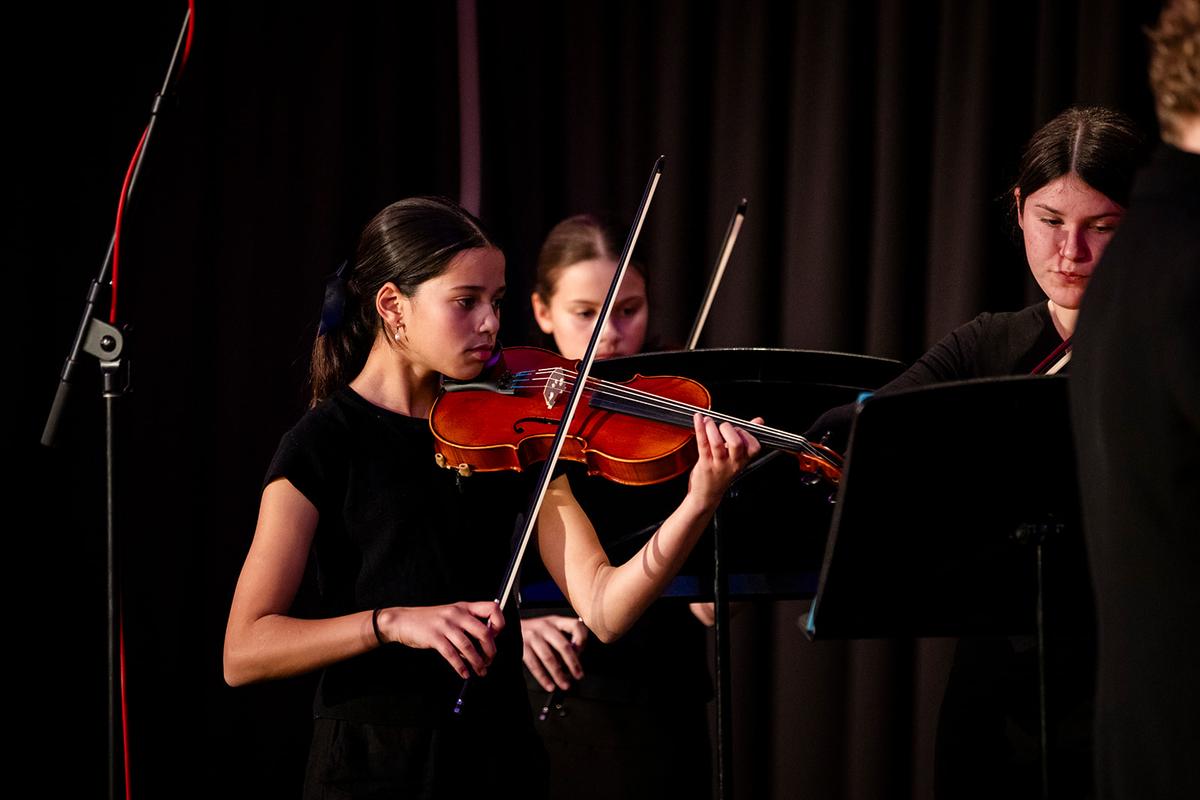

The inclusion of music in our student’s educational experience is highly important. Academic research supports the notion that music education enhances cognitive development, fosters emotional expression and wellbeing, promotes cultural appreciation and diversity, enhances academic performance and develops transferrable skills. As students engage in musical activities, they not only develop a deeper understanding and appreciation of the arts but also acquire invaluable skills and qualities that contribute to their overall growth and success.
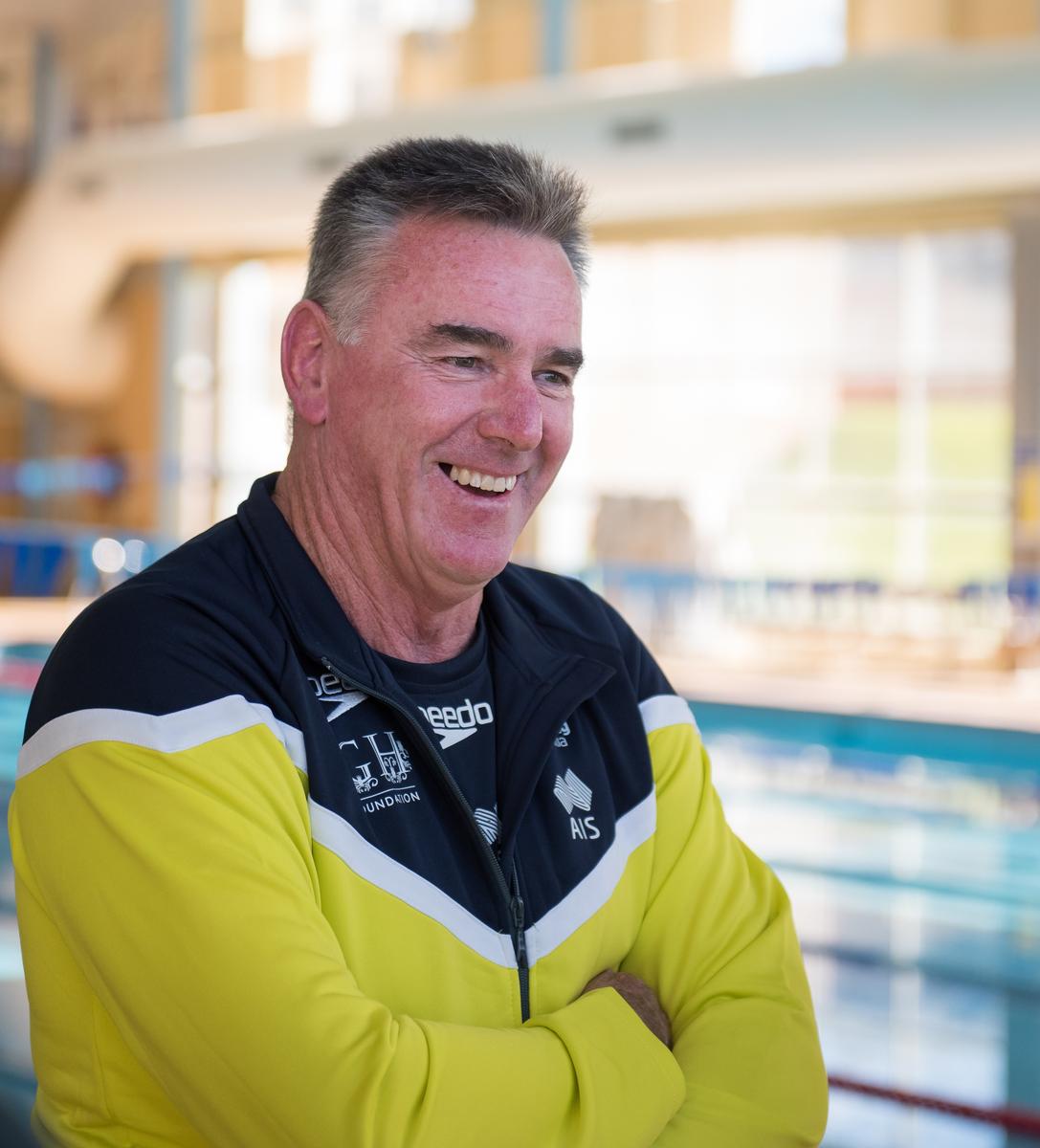

It is with deep respect and sadness that we remember our past Head of Swimming, Mr Kim Taylor, who passed away on 12 June 2025.
Kim’s life was steeped in water from his earliest days growing up in Grenfell, where he and his brothers spent countless hours at the local pool and he honed his swimming. His early promise as a swimmer led him to train under the legendary Don Talbot, and although circumstances meant he did not pursue a professional career in the sport, swimming never left his side.
Instead, Kim devoted his life to coaching and mentoring others. From private backyard lessons to leading squads across the Central Coast—at Woy Woy, Gosford, Toukley, Mingara and more—he built a legacy that touched thousands. His athletes included state and national champions, Paralympians, triathletes, Ironmen and Olympians. But perhaps most tellingly, Kim’s impact went far beyond accolades. He inspired belief, commitment and character in every swimmer he worked with, regardless of their level.
We were fortunate to welcome Kim back to Orange for the final chapter of his coaching career, here at Kinross Wolaroi School. In his six years with us, he transformed our swimming program and re-ignited a culture of excellence. With quiet tenacity, he coached a team of students into national competitors, achieving results that far exceeded expectation. For our swimmers and our staff, he was more than a coach—he was a mentor, a role model, and a friend.
Even after retiring, Kim continued to give back—mentoring young coaches and generously sharing his wisdom. His humility, his humour, and his unwavering commitment to others will be long remembered in swimming communities across the nation.
On behalf of Kinross Wolaroi School, I offer our heartfelt thanks—and farewell—to a much-loved coach and an exceptional man. Our sincere condolences are extended to his wife Dorothy and family at this difficult time.
Thank you, Kim.
Kim's funeral service will be held on Monday 23 June at 10am at Greenway Chapel & Memorial Gardents, Green Point, followed by a gathering at midday at Avoca Lifesaving Club. For those unable to attend, the service will be live-streamed at:
References:
(1) Trainor, L.J. (2012) Music Training Enhances Cognitive Skills. Annual Review of Neuroscience, 35, 141-156.
(2) Kraus, N and Chandrasekaran, B. (2010) Music training for the development of auditory skills. Nature Reviews Neuroscience, 11 (8), 599-605.
(3)Hallam, S. (2010) The Power Of Music: Its impact on the intellectual, social, and personal development of children and young people. International Journal of Music Education. 28 (3), 269-289.
(4)Schellenberg, E.G. (2004). Music lessons enhance IQ. Psychological Science, 15(8), 511-514.
(5)Collins, A. (2014). Music, mind and meaning. Frontiers in Psychology, 5, 1117.